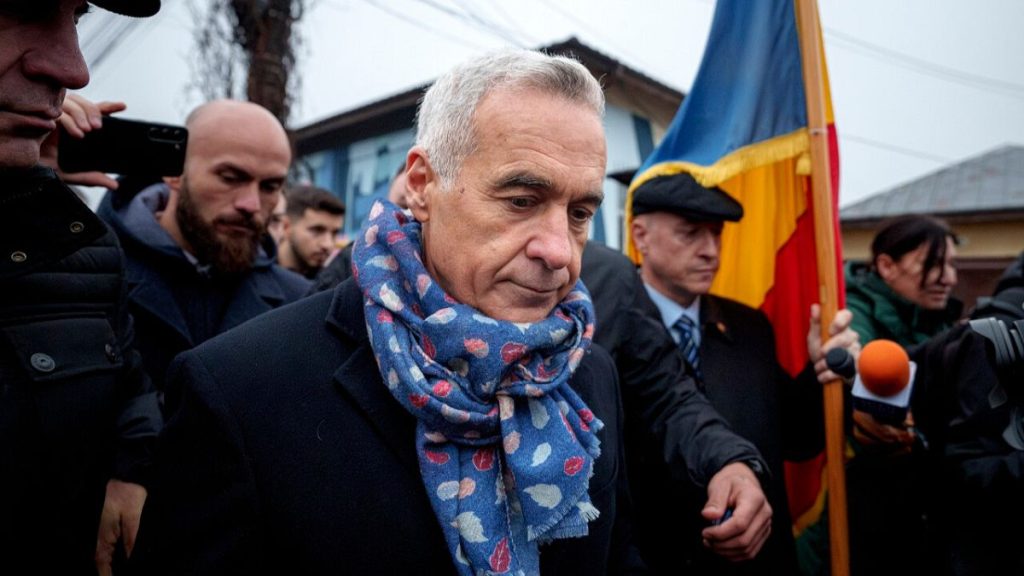The Romanian political landscape was thrown into disarray following an unprecedented decision by the Constitutional Court to annul the first round of the presidential election. This dramatic move stemmed from allegations of Russian interference, specifically a sprawling social media campaign orchestrated to bolster the unexpected frontrunner, Călin Georgescu, a far-right candidate. Georgescu, who had defied most pre-election polls, staged a protest outside a closed polling station on Constitution Day, ironically decrying the court’s decision as a cancellation of democracy and an infringement on freedom. The court’s ruling cited the illicit use of digital technologies, including artificial intelligence, and undeclared funding sources as the basis for its annulment. While the court refrained from explicitly naming Georgescu, it alluded to one candidate receiving preferential treatment on social media, thereby distorting the will of the electorate.
The annulment plunged Romania into a constitutional crisis, raising concerns about the integrity of the electoral process and the influence of external forces. President Klaus Iohannis, in a statement marking Constitution Day, underscored the gravity of the situation, emphasizing the responsibility of state institutions to uphold the law, the Constitution, and democratic principles in these turbulent times. He called for calm, wisdom, and respect for the rule of law in navigating this complex scenario. George Simion, leader of the far-right Alliance for the Unity of Romanians, echoed Georgescu’s sentiments, accusing the court of attacking democracy and urging President Iohannis to respect, rather than mock, the Constitution. The controversy surrounding the annulment underscores the fragility of democratic institutions and the vulnerability of elections to manipulation in the digital age.
Georgescu’s unexpected surge to the top of the polls in the first round baffled many political analysts, who had largely underestimated his support. His pre-election presence in traditional media was minimal, and most surveys placed him significantly behind several other contenders. Much of his visibility stemmed from his prolific use of TikTok, where he amassed a substantial following. This reliance on social media raised questions about the authenticity of his support base and the potential for manipulation. Some experts suspected artificial inflation of his online following, and Romania’s top security body alleged that TikTok granted him preferential treatment over other candidates. This unusual trajectory highlighted the growing influence of social media platforms in shaping political narratives and potentially influencing electoral outcomes.
The court’s decision to annul the election, while unprecedented, reflected the growing concern over the potential for foreign interference in democratic processes through social media manipulation. The allegations against Georgescu, though not definitively proven, pointed to a broader pattern of disinformation campaigns and the exploitation of digital platforms to sway public opinion. This incident serves as a stark reminder of the vulnerability of elections to external manipulation and the need for robust safeguards to protect the integrity of democratic processes. The court’s intervention, while controversial, aimed to preserve the sanctity of the electoral process and prevent the undue influence of external actors.
The annulment also ignited a debate about the role of social media platforms in elections and the need for greater transparency and accountability. The allegations of preferential treatment raised concerns about the power of these platforms to shape political discourse and potentially favor certain candidates. The incident underscored the urgent need for regulations and oversight to ensure fair and equitable access to online platforms and prevent their misuse for political manipulation. The Romanian case highlights the challenges posed by the rapid evolution of digital technologies and the need for legal frameworks to adapt to these evolving realities.
Elena Lasconi, the reformist candidate from the Save Romania Union party, who was slated to face Georgescu in the runoff, vehemently condemned the court’s decision. She argued that the annulment was not only illegal and immoral but also undermined the very foundation of democracy. Lasconi maintained that the second round should have proceeded as planned, and the court’s intervention represented a dangerous precedent. The court’s decision effectively reset the presidential race, requiring new dates to be set for a rerun of the entire election process. This unprecedented situation created uncertainty and instability in Romanian politics and raised fundamental questions about the interplay between judicial oversight, electoral integrity, and democratic principles.














